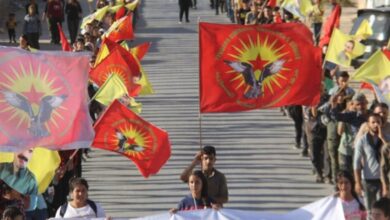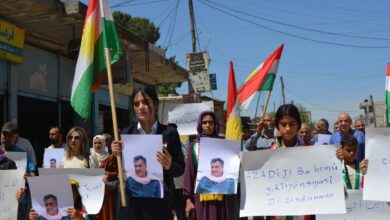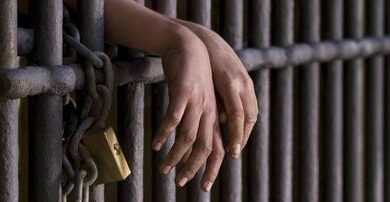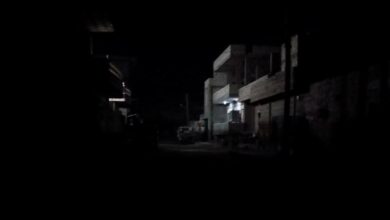
Qassem Suleimani: can this man bring about the downfall of Isis?
For more than a decade, the Iranian military leader and ideologue has wielded huge influence, thanks to the support of Shia fighters. The rise of Islamic State is his greatest challenge yet
Qassem Suleimani is not used to defeat. So, when the Iraqi army fled in the face of the Sunni insurgent group, Islamic State (Isis) in June, the Iranian general was on unfamiliar ground.
In 48 fateful hours from 10 June, six divisions of Iraqi forces had capitulated, surrendering Mosul, the second biggest city in the country, Tikrit, Saddam Hussein’s birthplace – and nearly losing Kirkuk.
In a functional state, such a disaster would best be addressed by homegrown generals or political leaders. But in more than 10 years of war, occupation and insurgency, foreign generals have controlled the levers of power in Iraq. US military officials have at times held sway, but never at the level enjoyed by the formidable Iranian who had been both kingmaker and overlord throughout that time and was about to step to the fore again.
Within hours of Isis taking Mosul, Suleimani had arrived in Baghdad,where he has remained in semi-permanent residence ever since, in the home of a senior member of the Iraqi parliament’s foreign affairs committee.
From there he has co-ordinated the defence of Baghdad, mobilised Shia militias and rallied his numerous proxies throughout the national legislature. He has also travelled north to prep the Kurds when Isis threatened Irbil in August and marshalled Iranian troops and airmen, who were deployed to Iraq within hours of the Isis rout.
Suleimani has been hailed across Iraq, particularly among the country’s Shias, as perhaps the only man who can stop Isis. In Iran, too, where the threat from the blazing insurgency next door is increasingly keenly felt, much hope is being placed in Suleimani to turn things around.
As head of the most elite unit of the Iranian military, the Quds Force of the Iranian Revolutionary Guards Corps, there has never been doubt about Suleimani’s standing in Iran.
His mandate for more than a decade has been to export the values of the 1979 Islamic Revolution and to defend its interests anywhere. His methods have been a blend of military intervention through ideological proxies and hard-nosed strategic diplomacy. His arc of influence has extended from Yemen, where a Shia insurgency is battling a Sunni-led regime, across the Levant and into Lebanon, where Hezbollah remains poised on Israel’s northern border – the apex of the Quds Force’s agenda.
All the while, Suleimani has clocked up gains. While US forces were in Iraq, the Iraqi militias that Suleimani armed and backed accounted for around 25% of all US battle casualties – according to US figures. In Syria since early 2012, he directed the fightback of the Syrian regime against opposition groups. There, as happened in Iraq, large numbers of ideologically driven sectarian militias were summoned from across the Shia diaspora to fight alongside the beleaguered forces of Bashar al-Assad.
And in Yemen, the Houthi Shia insurgency has the feeble state on the back foot and – more importantly for Iran – Saudi Arabia next door increasingly worried.
With a restive Shia minority of its own, Riyadh greatly fears what it sees as a subversive threat posed by the Suleimani-backed Houthis over its eastern border. The Shias of Saudi Arabia are mostly in the country’s east, and Riyadh believes that the insurgency is an Iranian ploy to ultimately unsettle the House of Saud in its own back yard.
The Houthis are on the ascendancy at the same time as the Assad regime – under Suleimani’s tutelage – is successfully splintering the Sunni-dominated opposition. What’s more, Hezbollah continues to entrench itself as the most powerful military and political player in Lebanon.
Syria’s relative stability – particularly in the capital Damascus and the Alawite heartland stretching northwest to the coast – has allowed Suleimani to focus on Iraq, a battleground that he knows better than anyone, and where the high stakes ambitions of the Quds Force and Iran’s hardline clergy now look set to be thrashed out with an implacable foe.
“He has been all over the city since June,” said a senior Iraqi lawmaker, who has had meetings with Suleimani twice a month since Isis took Mosul. “He is totally responsible for organising the defences of the capital. He has the Shia militias, Asa’ib ahl al-Haq, Kata’ib Hezbollah and the Badr Brigades following his instructions to the letter.
“This is ideological for Suleimani and for [Ayatollah Ali] Khamenei [to whom he directly reports]. This is not a battle for the future of Iraq. This is a war for Shiism. Of all the conflicts of the past 10 years, this is the one that has Suleimani most rattled. It is testing him.”
The high stakes may in part explain why the 57-year-old major general has taken a much higher profile in recent months than ever before. He has regularly been photographed on the frontlines north of Baghdad, in meetings in the capital, and in the Shia Turkmen town of Amerli in central Iraq, which was besieged by Isis until Suleimani-led militias, Kurds and the Iraqi army took it back in August.
There followed one of the most extraordinary paradoxes of the post-Saddam era, when Amerli fell to Suleimani’s men under the cover of the US air force, which attacked Isis positions before and during the ground assault. After the battle, Suleimani was captured doing a victory jig in the sand with militiamen. He seemed to relish the irony of being allied with an arch-enemy, though in meetings in Baghdad since, he has played down claims of direct collaboration between Tehran and Washington in fighting a common enemy.
“He says America remains the enemy and is probably backing Isis anyway,” said one senior figure who has been part of several meetings with Iraqi leaders. “He’s not very convincing about that; he knows as well as we do where Isis comes from. But it suits him for now to stick to the time-worn narrative of them being the architect of all that is wrong.”
While Suleimani has shown a pragmatic touch in dealing with Isis, those who know him well says he remains an ideologue at his core – a man convinced that he is advancing the interests of Shiite Islam according to the precepts of the Islamic Revolution.
Among his many key contacts in Baghdad is Ahmed Chalabi, the former US ally and lead proponent of the invasion to oust Saddam. Though secular, Chalabi is a champion of Shia causes, from Bahrain to Syria and Hezbollah.
He has the ear of Suleimani on a broad range of issues, but his secular views played against him in the political horse trading over the summer surrounding who would replace Nour al-Maliki as prime minister.
“I can never fully trust Chalabi, because he is a liberal,” Suleimani told a senior leader of a political bloc trying to form a government at the time. “I was shocked,” the leader told the Observer. “As far as I know, there are very few people who have done more for [Suleimani]. And here he is being marked down because he doesn’t pray.” With Isis occupying one third of Iraq and a similar chunk of Syria, Iran, for now, has little option but to work with the western and Arab forces trying to degrade the terror group.
Suleimani well knows that Isis is successfully tapping into a wide disaffection among the Sunnis in the centre of the region with a Shia-led body politic that has sidelined them since the fall of Saddam, and left them persecuted in Syria – which is led by a Shia-aligned Alawite regime – and in Lebanon, where Hezbollah rules the roost.
Such a groundswell is a clear strategic risk to Suleimani’s gains over a decade or more and, if left unchecked, could move towards an existential threat to the region’s Shias who, though powerful now in the centre of the region, remain a minority in the Arab and Islamic worlds.
After a remarkable run, it is all on the line for Suleimani. Syria, though tipping in Assad’s favour, is not a done deal and can never be, as long as Isis runs roughshod over its 800-mile border with Iraq. Throughout Iraq, tactical wins by militias and regular troops have done nothing to change the reality that the country’s military cannot seize and hold ground without a lot of help.
The man who has moved most of the pieces on the regional chess board since 2003 now finds himself up against his most formidable foe. “Can he steady things,” asked an Iraqi vice president recently. “If he can, he is going to need help from people that he finds unpalatable. This is the last chance for Iraq. It really is. This is the biggest test we will ever face.”
The Guardian




